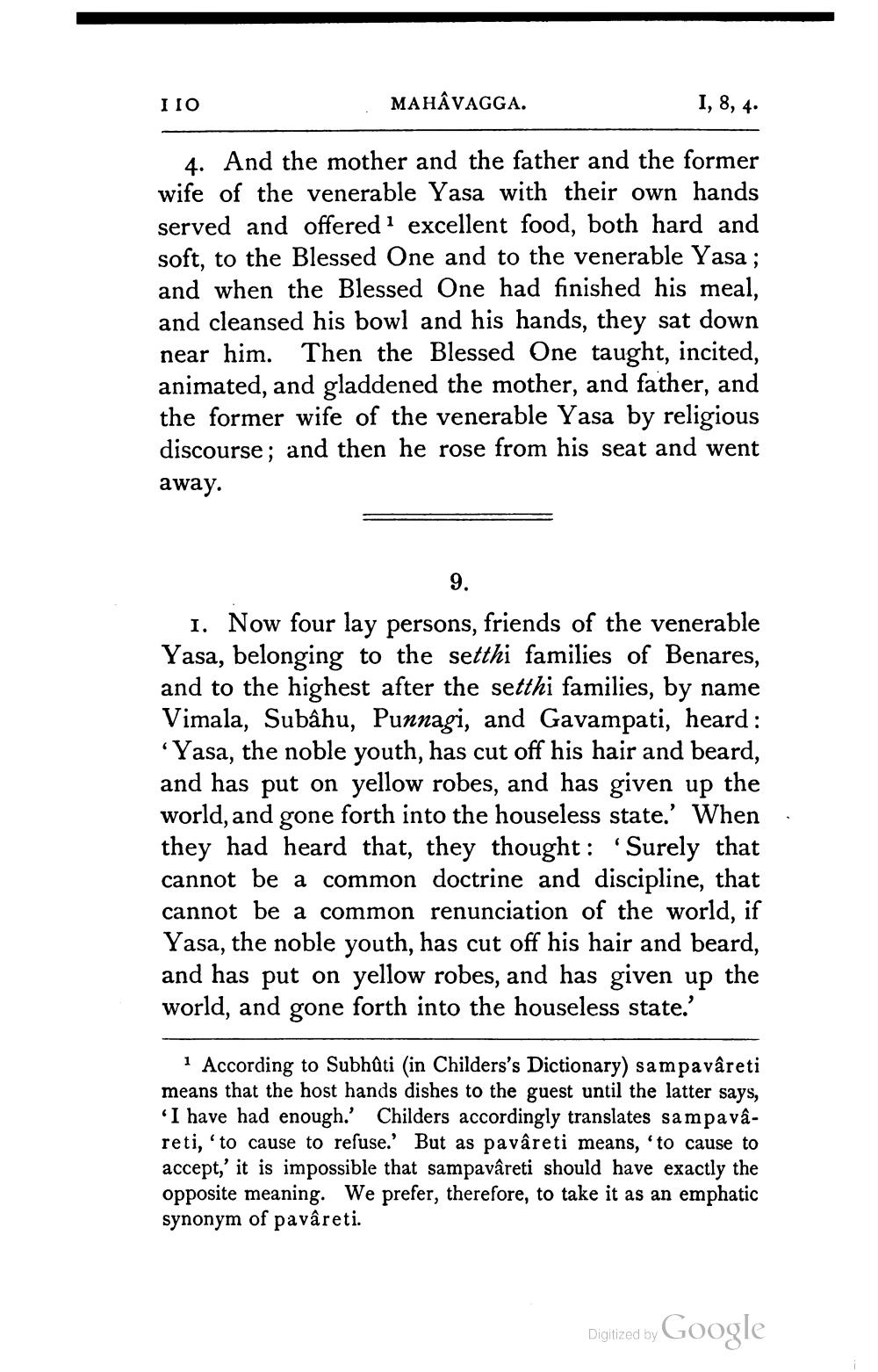________________
ITO
MAHÂVAGGA.
I, 8, 4.
4. And the mother and the father and the former wife of the venerable Yasa with their own hands served and offered excellent food, both hard and soft, to the Blessed One and to the venerable Yasa ; and when the Blessed One had finished his meal, and cleansed his bowl and his hands, they sat down near him. Then the Blessed One taught, incited, animated, and gladdened the mother, and father, and the former wife of the venerable Yasa by religious discourse; and then he rose from his seat and went away.
1. Now four lay persons, friends of the venerable Yasa, belonging to the setthi families of Benares, and to the highest after the setthi families, by name Vimala, Subâhu, Punnagi, and Gavampati, heard :
Yasa, the noble youth, has cut off his hair and beard, and has put on yellow robes, and has given up the world, and gone forth into the houseless state.' When. they had heard that, they thought: 'Surely that cannot be a common doctrine and discipline, that cannot be a common renunciation of the world, if Yasa, the noble youth, has cut off his hair and beard, and has put on yellow robes, and has given up the world, and gone forth into the houseless state.'
1 According to Subhûti (in Childers's Dictionary) sampavâreti means that the host hands dishes to the guest until the latter says, 'I have had enough.' Childers accordingly translates sampavâreti, 'to cause to refuse.' But as pavâreti means, 'to cause to accept,' it is impossible that sampavâreti should have exactly the opposite meaning. We prefer, therefore, to take it as an emphatic synonym of pavâreti.
Digitized by Google




